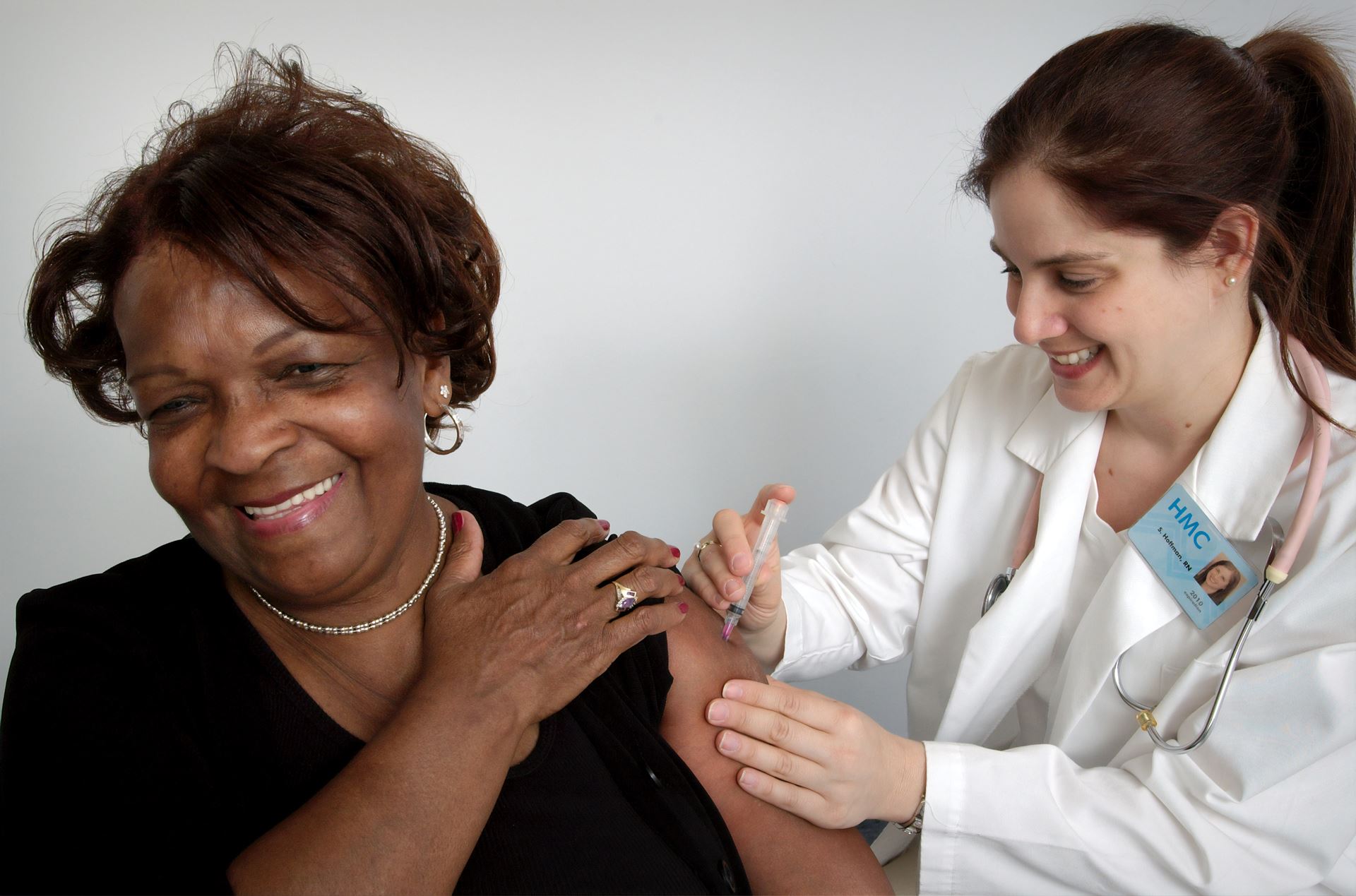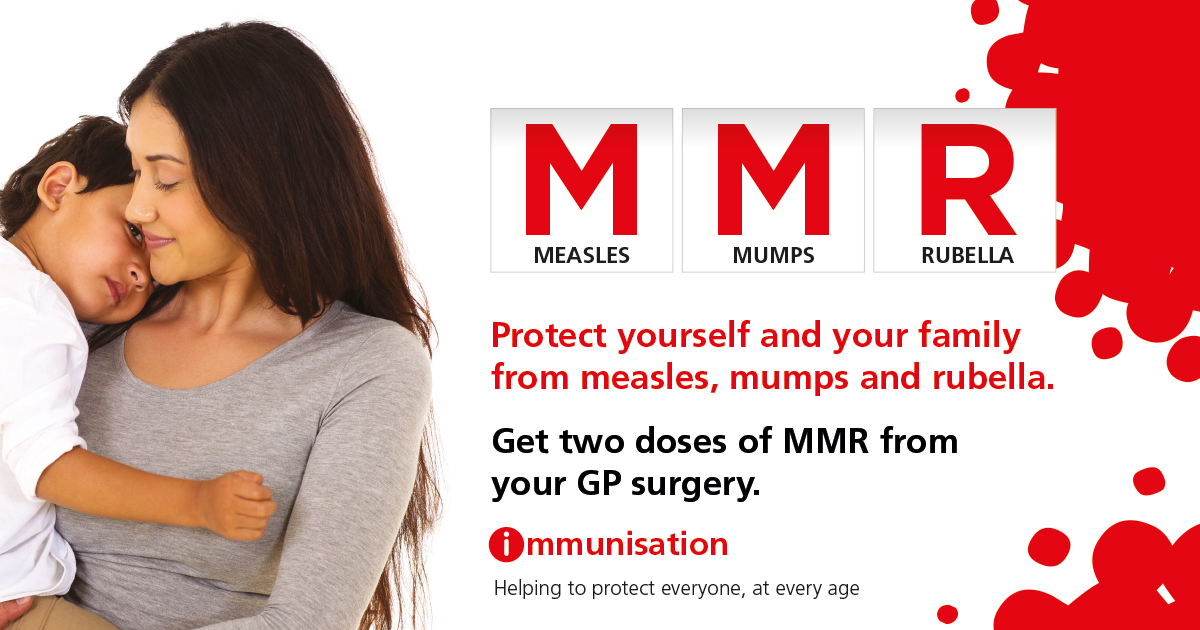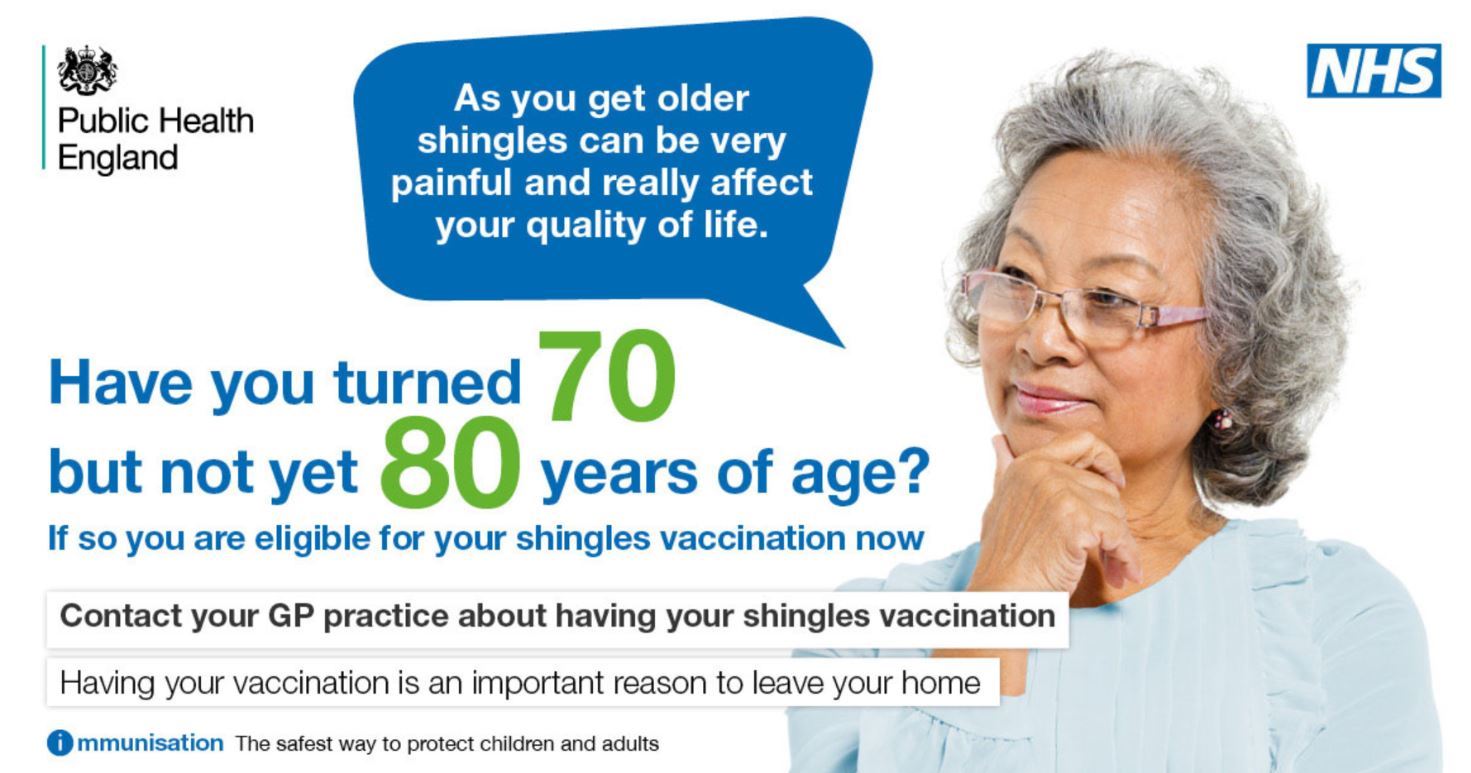Immunisations
Winter 2025 - Vaccine Guides
Vaccination is the most important thing we can do to protect ourselves and our children against ill health.
Starting from September, the winter vaccine programme will be available. This means that certain groups of people will be eligible for vaccines such as flu, covid and RSV.
Vaccination helps:
- Protect vulnerable groups from serious illness
- Prevent the spread of viruses in our communities
The NHS websitehas a range of trusted information about vaccines if you are unsure about what to expect.
Vaccines are offered every year as viruses change, and immunity fades.
You can check your eligibility and book your vaccine through the NHS website, or by calling your local GP or Pharmacy.
People who are eligible can get their vaccine for free.
Winter vaccine guides FINAL.pdf
HPV Vaccination
What is the HPV vaccine?
The HPV vaccine is one of the most successful in the world, now given as just a single dose. It helps protect against the human papillomarvirus (HPV), more specifically it helps protect against cancers, including cervical, head and neck, and anal and genital cancers, which can affect both boys and girls.
HPV is a virus that’s very common and spread very easily through any form of sexual contact with someone who already has it. Vaccination for boys and girls at a younger age is more effective at protecting them against the virus in the future.
Although most types of HPV are harmless, some types are linked to an increased risk of certain types of cancer (as listed above). HPV can also cause genital warts.
How effective is the HPV vaccine?
“The HPV vaccine is not new. Since 2008, over 10 million doses have been administered in the UK, and over 18 million people worldwide have been vaccinated with this vaccine. The HPV vaccine is 99% effective and has already reduced rates of cervical cancer by 90% in women in their 20s who were offered it at ages 12 and 13 years,”
“It is given to Year 8 children in school by our School Age Immunisations Service (SAIS), who will be visiting secondary schools between now and July. However, parents and guardians need to provide their consent for their child to be vaccinated and should have received a digital consent letter from school.”
Have you provided consent for your child you be vaccinated?
Given what the HPV vaccine provides protection against, I strongly encourage all parents and guardians to provide their consent as soon as possible, to ensure your child can receive the vaccination in school and to help reduce their risk of certain HPV cancers in the future,” adds Dr Hindocha.
If your child missed getting vaccinated when they were 12 or 13 years-old, the HPV vaccine is available free on the NHS for all girls under 25 and boys born after 1st September 2006. If your child still attends school, you can contact the School Age Immunisations Service. If not, you will need to contact your GP surgery.
Find out more about the HPV vaccine
For more information on the HPV vaccine, including information about other people who are eligible for the HPV vaccine, visit HPV Vaccine NHS
Help protect their future from certain HPV‑related cancers
(HPV: human papillomavirus)
Schools near you are taking part in the free HPV NHS vaccination programme, available to all children from year 8 or S1.
How to protect their future from HPV?
Boys and girls aged from 12 years (11 in Scotland) are offered HPV vaccination at school as part of the NHS National Vaccination Programme. Look out for more information from your child’s school. If your child missed out on their vaccination in year 8, they may still be eligible to receive it.
RSV Vaccination
RSV vaccine
The RSV vaccine helps protect against respiratory syncytial virus (RSV), a common virus that can make babies and older adults seriously ill. It's recommended during pregnancy and for adults aged 75 to 79.
What the RSV vaccine is for
The RSV vaccine helps protect against respiratory syncytial virus (RSV). https://www.nhs.uk/conditions/respiratory-syncytial-virus-rsv/
RSV is a common cause of coughs and colds. Most people get it several times during their life.
It usually gets better by itself, but in some people (especially babies and older adults) it can cause illnesses such as:
- pneumonia (a lung infection)
- bronchiolitis (a chest infection that affects babies)
These illnesses can cause serious breathing problems. They may need to be treated in hospital and can be life-threatening.
Getting RSV can also make your symptoms worse if you have a lung condition, such as chronic obstructive pulmonary disorder (COPD).
The RSV vaccine helps reduce the risk of serious breathing problems like pneumonia and bronchiolitis.
Who should have the RSV vaccine
The RSV vaccine is recommended if:
- you're pregnant – the vaccine is recommended during every pregnancy (from 28 weeks onwards) to help protect your baby after they're born
- you're aged 75 to 79
If you're aged 80 or over
If you turned 80 on or after 1 September 2024, you're eligible for the RSV vaccine until 31 August 2025.
You're not eligible for the RSV vaccine if you turned 80 before 1 September 2024.
How to get the RSV vaccine
There are different ways to get the RSV vaccine.
If you're pregnant
You should be offered the RSV vaccine around the time of your 28-week antenatal appointment.
Getting vaccinated as soon as possible from 28 weeks will provide the best protection for your baby. But the vaccine can be given later if needed, including up until you go into labour.
Speak to your maternity service or GP surgery if you're 28 weeks pregnant or more and have not been offered the vaccine.
If you're aged 75 to 79
Your GP surgery will usually contact you about getting the RSV vaccine. This may be by letter, text, phone call or email.
Please wait to be contacted before booking your vaccination.
How the RSV vaccine is given
The RSV vaccine is given as an injection into your upper arm.
Unlike some vaccines (such as flu or COVID-19 vaccines), the RSV vaccine is given all year round.
If you're pregnant, you should have the vaccine during every pregnancy. This will help make sure each baby is protected for the first 6 months after they're born, when they're most likely to get seriously ill if they get RSV.
Older adults only need 1 dose, which should protect them for several years.
Having the RSV vaccine at the same time as other vaccines
If you're pregnant, you can have the RSV vaccine at the same time as other pregnancy vaccines, such as the whooping cough and flu vaccines.
But it's best to have them as soon as they're offered rather than waiting to have them at the same time.
If you're aged 75 to 79, the RSV vaccine is not usually given at the same appointment as your flu or COVID-19 vaccines, but you can have them at the same time if a doctor or nurse thinks it's needed.
You can have it at the same time as other vaccines, such as the shingles and pneumococcal vaccines.
Cases of Measles are on the rise, there has been a recent outbreak and we recommend our patients to get Vaccinated
Please see attached posters on how to stay safe:
Measles STOP THE SPREAD
https://publichealthengland-immunisati.app.box.com/s/mgppw733nelj3s4mtk8n13tsauznl691
Measles_poster_English.pdf Measles_symptoms_leaflet_English.pdf PHE_Measles_outbreak_A4_poster_for_GP_surgery_reception.pdf
Protecting against measles, mumps and rubella (MMR)
Measles
Measles is caused by a very infectious virus. Nearly everyone who catches it will have a high fever, a rash and generally be unwell.
The complications of measles include chest infections, fits (seizures), encephalitis (infection of the brain), and brain damage. In very serious cases, measles can kill.
Mumps
Mumps is caused by a virus which can lead to fever, headache, and painful, swollen glands in the face, neck and jaw. It can result in permanent deafness, viral meningitis and encephalitis (inflammation and swelling of the brain).
Rubella
Rubella (German measles) is a disease caused by a virus. In children it is usually mild and can go unnoticed. But, rubella in pregnancy is very serious for unborn babies. It can seriously damage their sight, hearing, heart and brain. This condition is called congenital rubella syndrome (CRS).
The MMR vaccine
It contains weakened versions of live measles, mumps and rubella viruses. Because the viruses are weakened, people who have had the vaccine cannot infect other people. In the UK we have 2 MMR vaccines. Both work very well, one contains porcine gelatine and the other doesn’t. If you want your child to have the porcine gelatine-free vaccine, discuss it with your practice nurse or GP.
You can view the MMR vaccine Patient Information Leaflets at:
The MMR vaccine is the safest way to protect your child against measles, mumps and rubella.
How and when the vaccine is given
The vaccine is injected into the muscle of the thigh or upper arm. It is given at one year of age after the immunity the baby got from their mother fades. A second dose of the vaccine should be given again before your child starts school at around 3 years and 4 months of age.
Effectiveness of the MMR vaccine
MMR vaccine has been responsible for almost wiping out these 3 diseases in young children since it was introduced in the UK in 1988.
Side effects of the MMR vaccine
The 3 different viruses in the vaccine act at different times and may produce the following side effects after the first dose:
-
6 to 10 days after immunisation, as the measles part of the vaccine starts to work, about 1 in 10 children may develop a fever and some may develop a mild measles-like rash and go off their food
-
about 1 in every 1,000 immunised children may have a fit caused by a fever – this is called a ‘febrile convulsion’; however, children who are not immunised and get measles are 3 times more likely to have a fit
-
about 3 weeks after MMR vaccination, as the mumps part of the vaccine starts to work, some children may rarely get mumps-like symptoms (fever and swollen glands)
-
very rarely, children may get a rash of small bruise-like spots in the 6 weeks after the vaccination, usually caused by the measles or rubella parts of the vaccine – if you see spots like these, take your child to the doctor to be checked; your doctor will tell you how to deal with the rash and how to protect your child in the future
-
fewer than one in a million children may develop encephalitis (inflammation and swelling of the brain) after the MMR vaccine. However, if a child catches measles, the chance of developing encephalitis is between 1 in 200 and 1 in 5,000
If your baby is allergic to eggs
The MMR vaccine can safely be given to children who have had a severe allergy (anaphylactic reaction) to egg. If you have any concerns, talk to your health visitor or practice nurse.
The MMR vaccine and gelatine
In the UK, we have 2 MMR vaccines which work very well. One of them contains gelatine and the other one doesn’t. If you would prefer to have the vaccine that does not contain porcine gelatine, talk to your practice nurse.
updated January 2024
Does Age Affect The Risk Of Flu?
Yes. If you are aged 65 years or over or you are at higher risk
Who is at risk?
- If you are aged 65 years or over or if you are on regular inhaled steroids
- If you have a chronic respiratory disease (including asthma)
- If you have chronic heart disease
- If you have chronic renal disease
- If you are diabetic
- If you have a weak immune system
- If you live in a long-stay residential or nursing home
- If you have a chronic liver disease
- If you are a carer

Page created: 23 September 2021

